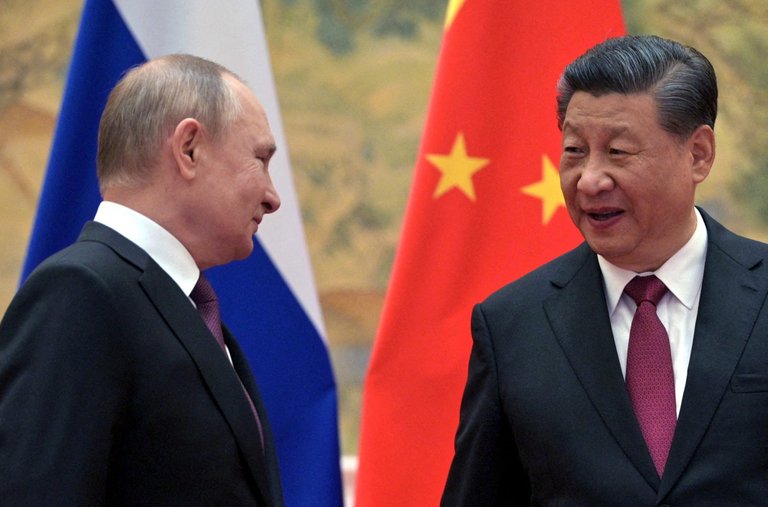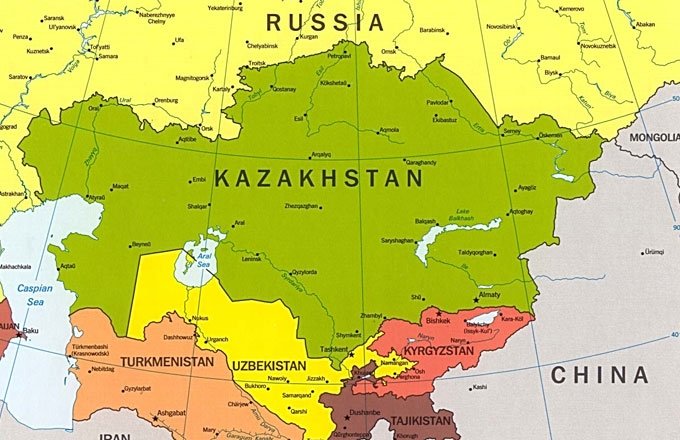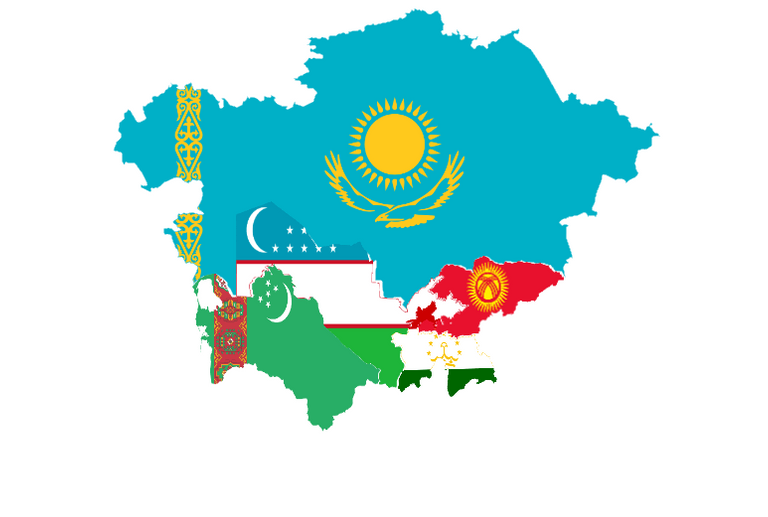Russia, China and Kazakhstan ....Common Interests??
"We fully understand the inevitability of the measures taken by Russia to protect its main interests, and we offer our assistance," a statement by the Russian parliament quoted the Chinese official as saying. "Regarding the Ukrainian issue, we see that (the West) put Russia in an impossible time. In light of this, Russia made an important choice and responded firmly," he added.
The Chinese state news agency (Xinhua) reported that the Chinese official participated in the Eastern Economic Forum in the Russian Far Eastern city of Vladivostok, which started on the seventh of September, before his visit to the Russian capital, Moscow. The agency reported that Li met with the Russian president, where he thanked Moscow for "its support." Beijing's strong position on the Taiwan issue."
In it, Shen Yu-shih, an expert on Central Asian affairs at the Institute of National Defense and Security Research in Taiwan, said that the tensions between the West and Russia on the one hand and the West and China on the other hand will push Moscow and Beijing to enhance cooperation, even though China is seeking to gain influence in the region. The countries of Central Asia, which is a traditional area of influence of Russia. "The status quo will force both countries to stand together and act against the common enemy," he added in an interview with DW.
Neva Yao, a senior researcher at the Academy for Security and Cooperation in Europe, a Kyrgyzstan-based think tank on foreign affairs, argues that the Russia-China alliance was created with a common goal of finding an alternative to the Western-led world order.
Nevertheless, she believes that this alliance is not "absolute" in light of Russia's efforts to reshape its spheres of influence in Asia, adding, "What China does not realize is that Russia's goal is not to overthrow the West, but to revive the Soviet Union." She said that with the development of events, China "will wake up to a wake-up bell," noting that in the future, China will need to quickly reset its relations with Russia in accordance with geopolitical developments.
What is the importance of Central Asia?
It is worth noting that China and Russia are seeking to increase their influence in Central Asian countries, especially Kazakhstan and Uzbekistan, where Beijing views the region as an important pillar of the Belt and Road project. As for Russia, it is also trying to maintain its role as a major strategic and economic partner in the Central Asian region, which was formerly part of the Soviet Union.
However, Neva Yao points out that Central Asian countries are looking for new partners worse in the Arab world and South Asia because they do not want to rely too much on China or Russia in light of the escalation of tensions in Ukraine and Taiwan.
She adds that the Russian war in Ukraine "is a source of concern for Central Asia," noting that Russia and China want to ensure that these countries do not enter into alliances with new partners. She believes that the Shanghai Organization summit will be an opportunity "for member states to express their interests and the steps they can take."
As for Kazakhstan, it is an important partner of China in the Central Asian region, due to its being a vital source of minerals, metals and energy resources as well as its strategic location for transport traffic between Europe and China.

Image Credit
Symbolic journey
For his part, Bradley Jardine, a political analyst and fellow at the Wilson Center think-tank in Washington, sees Xi's upcoming tour as "symbolic."
He adds that Kazakhstan "was the place where the Chinese president announced the Belt and Road Initiative in 2013, while the initiative is a focal point in his foreign policy, because it shows the growing Chinese position on the international scene."
Despite this, the political situation in Kazakhstan is still fragile after the large wave of protests that took place in the country in January, after raising gas prices, which killed 200 people.
With the escalation of violence at the time, Russia intervened at the request of President Kassym-Jomart Tokayev to help end the unrest, within the framework of the Russian-led Collective Security Treaty Organization, which is a military alliance of six former Soviet states established after the dissolution of the Soviet Union.
Researcher Neva Yao says that China made an offer at the time to support Tokayev, but the latter did not respond to the Chinese initiative, adding that this matter raised Beijing's concern about the policy of the President of Kazakhstan towards Beijing. And she added, "This makes Kazakhstan a very important country for China to be the station of the Chinese president in light of bilateral cooperation and international changes."

